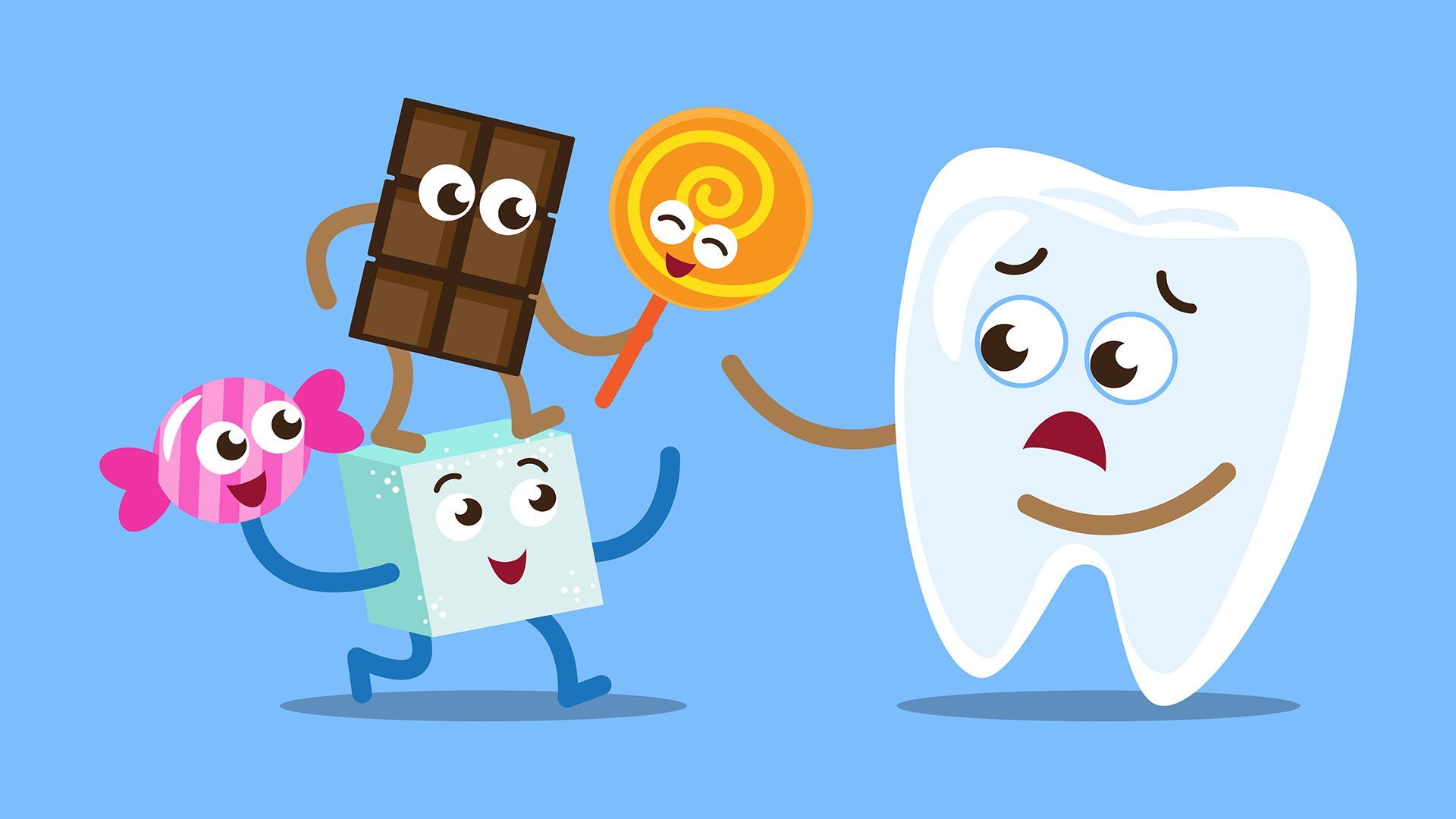Foods That Cause Cavities in Kids
Ensuring your child has healthy teeth is crucial, and one key factor is their diet. Certain foods can promote tooth decay, leading to cavities. Understanding these foods that cause cavities in kids and their effects on dental health can help you make better dietary choices for your child. This article highlights the foods to avoid to prevent cavities and offers healthier alternatives to protect your child's smile. By staying informed, you can help maintain your child's dental health and minimize the risk of cavities in preschoolers and beyond.

Understanding Cavities and Their Causes
Cavities, a major dental health concern for children, result from the erosion of tooth surfaces by acids formed by bacteria consuming sugars from food. If untreated, cavities can lead to pain, infections, and even tooth loss, affecting a child's ability to eat, speak, and learn effectively.
The cavity formation process starts with plaque, a sticky bacterial film on teeth. Sugary and starchy foods, like candies and breakfast cereals, are broken down by bacteria in plaque, producing acids that attack the enamel. Regular brushing and flossing help remove plaque, but it's also important to be aware of foods that cause cavities in kids and contribute to this process.
Diet and dental health are closely linked. Limiting sugary snacks and drinks while promoting healthier food choices can significantly reduce cavity risk. Emphasizing preventive care and education can help families maintain optimal oral health from an early age.
Common Foods That Lead to Cavities
Awareness of foods that cause cavities in kids is crucial for maintaining children's dental health. Sugary snacks like candies, cookies, and sugary cereals are primary culprits. When consumed, sugar interacts with mouth bacteria to produce acids that erode enamel, increasing cavity risk.
Acidic foods and drinks, including citrus fruits, sodas, and sports drinks, also pose a threat. They can wear away enamel, making teeth more susceptible to tooth decay types and sensitivity.
Sticky snacks such as fruit snacks, caramel, and certain granola bars can be especially problematic. They cling to teeth, facilitating plaque formation and making it difficult for saliva to wash away residues, which can lead to cavities in preschoolers and older children alike.
Encourage your child to drink plenty of water and maintain good oral hygiene. Regular orthodontic visits can provide additional guidance for a cavity-free smile.
How Do Foods Promote Tooth Decay?
Tooth decay in children is significantly influenced by their diet. The sugar fermentation process by mouth bacteria produces acids that erode enamel, the teeth's protective layer. Over time, this acid attack weakens enamel, increasing cavity susceptibility.
The frequency of sugary food consumption is also crucial. Each time a child eats or drinks something sugary, an acid production cycle begins. Frequent snacking keeps the mouth acidic for extended periods, raising tooth decay risk. Unlike occasional treats, constant snacking increases overall acid exposure, harming dental health.
Parents should monitor both the types of foods and their frequency of consumption. Encouraging healthier snack options and limiting foods to avoid to prevent cavities can significantly improve oral health.
Healthy Food Choices for Strong Teeth
Nutrient-rich foods are essential for maintaining your child's dental health. Foods high in vitamins and minerals support health and strengthen teeth, preventing cavities. Including fruits and vegetables in your child's diet provides essential vitamins, while whole grains offer fiber that helps clean teeth while chewing.
Calcium and phosphorus are crucial for developing strong enamel. Dairy products like milk, yogurt, and cheese are excellent calcium sources, rebuilding and maintaining enamel strength. Phosphorus, found in protein-rich foods like lean meats, fish, and eggs, works with calcium to fortify tooth structure.
Encouraging a balanced diet rich in these nutrients supports dental health and overall well-being, ensuring a bright, cavity-free smile, especially for cavities in preschoolers.
Tips for Cavity Prevention Through Diet
Preventing cavities in kids starts with a mindful approach to diet. Reducing sugar intake by limiting sugary drinks and snacks is effective. Encourage water or milk instead of soda or fruit juices, and choose whole fruits over fruit-flavored snacks. This shift not only reduces sugar consumption but also provides essential nutrients.
Healthy snacking is vital for oral health. Offer tooth-friendly snacks like cheese, yogurt, vegetables, and nuts. These foods promote strong teeth and help neutralize mouth acids. Whole grain crackers and popcorn are great alternatives to sugary treats, offering a satisfying crunch without causing cavities.
Hydration is crucial for oral health. Drinking plenty of water helps wash away food particles and bacteria, reducing cavity risk. Encourage regular water sips, especially after meals and snacks. Fostering these habits significantly reduces cavities and promotes lifelong good oral health.
The Role of Dental Hygiene in Cavity Prevention
Maintaining good dental hygiene is essential for preventing cavities, especially with diet considerations. Ensure children brush twice daily with fluoride toothpaste. Parents should supervise brushing until age seven or eight, ensuring all tooth surfaces are covered. Daily flossing removes food particles and plaque, especially between teeth and along the gum line.
Regular dental check-ups are crucial for cavity prevention. Dental professionals can monitor oral health, identify early issues, and provide treatments like fluoride applications or sealants. Check-ups also educate parents and children on maintaining good hygiene habits, including the impact of dietary choices on dental health. Integrating these practices into routines significantly reduces cavity risks and promotes healthy smiles.
Looking for uncommon foods that cause cavities?
Check out our article on sneaky foods here.









